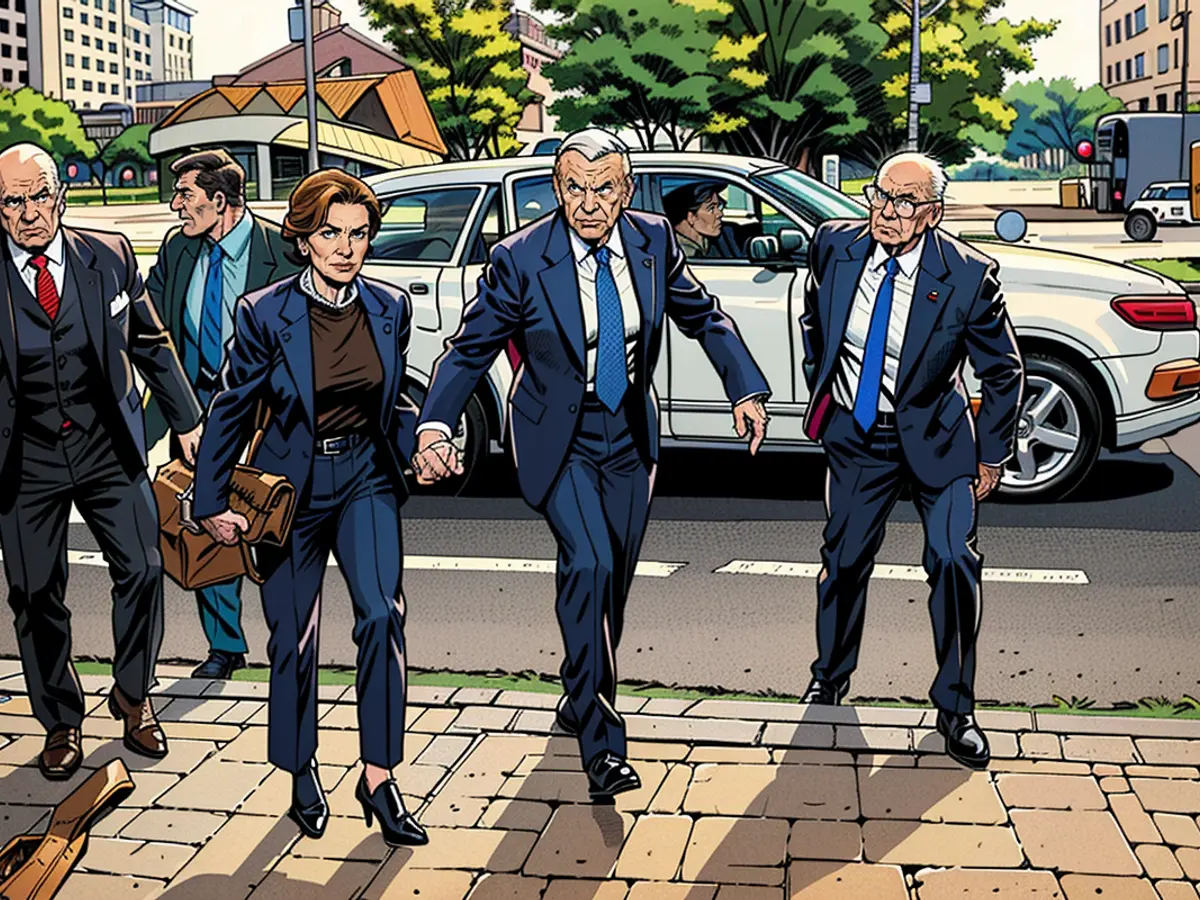News entities request the Nevada Supreme Court to expose the confidential Murdoch family succession litigation.
Murdoch is aiming to revise the family trust he set up years ago, granting his four senior offspring equal voting powers over his conservative news empire after his demise. The elderly patriarch wants to alter the structure so that his oldest son and handpicked successor Lachlan, who shares his political views more than his other children, maintains control for years to come. However, his three elder children are objecting to this alteration.
This family dispute is unfolding in a courtroom in Washoe County, Nevada, which offers one of the most concealed court settings for family trust matters. This privacy is so extreme that not even case details are listed on the court dockets. The Murdoch case became public knowledge only when The New York Times published an article about it in July.
Last week, a group of six news organizations, including CNN, The New York Times, and The Washington Post, submitted a petition to the Washoe County court, advocating for openness, asserting that the secrecy infringes on the constitutional right to access and that the job prospects of thousands and the political influence of a significant American player would be determined in this case. However, the district court rejected the appeal, and the hearings, attended by Rupert and his senior four children, continue privately this week.
The media coalition's petition to the Nevada Supreme Court, filed last Thursday, requests open court access and access to the case documents.
The coalition argued that sealing the case contradicts the strong First Amendment right of access to civil proceedings and that Nevada law does not permit blanket sealing.
Attorneys for the Murdoch family members argued in court documents last week that the case should remain secret to protect confidential business information, including businesses like Fox News and The Wall Street Journal, and to maintain Rupert's safety.
In its petition to the high court, the news outlets argued that selective redactions can be made to safeguard truly private information.
Despite the media coalition's petition to the Nevada Supreme Court, the Murdoch family's attorneys continue to defend the need for secrecy, citing the protection of confidential business information and Rupert's safety. Meanwhile, the debate over openness in the media and business realm continues, with the coalition advocating for selective redactions to uphold the First Amendment right of access.








